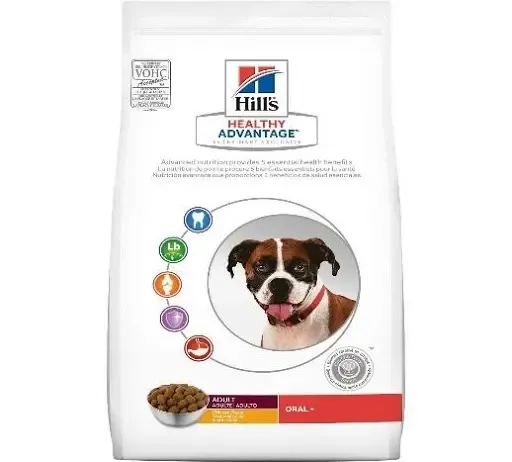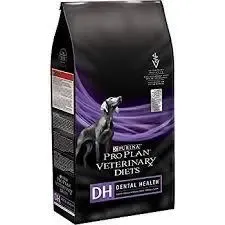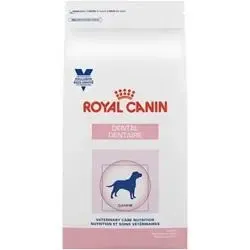Caring for our beloved canine companions often extends beyond cuddles and playtime; it deeply involves their health, especially their dental well-being. For small dog breeds, dental health is a particularly critical concern, as they are often more predisposed to plaque and tartar buildup than their larger counterparts. While daily brushing remains the gold standard for at-home oral care, the right diet can significantly complement these efforts. Specifically formulated dental kibble, designed to physically scrub teeth and inhibit plaque accumulation, can be a powerful tool in preventing oral disease in small dogs. Understanding which healthy natural food for dogs options offer dental benefits is key to ensuring a long, healthy life for your tiny friend.
Why Small Dogs Need Special Dental Attention
Small dog breeds, such as Chihuahuas, Yorkshire Terriers, and Poodles, often face unique dental challenges due to their unique anatomy. Their smaller mouths can lead to crowded teeth, creating more surfaces and crevices where plaque and tartar can accumulate. This overcrowding makes effective cleaning more difficult, increasing their susceptibility to periodontal disease, a progressive condition affecting the tissues surrounding the teeth. Without proper intervention, this can lead to pain, tooth loss, and even systemic health issues. Therefore, proactive dental care, including specialized diets, is paramount for these breeds.
The Consequences of Neglecting Your Dog’s Oral Health
Dental disease in dogs begins with the accumulation of plaque—a sticky film of bacteria, food debris, and saliva. If not regularly removed, plaque hardens into tartar, a calcified substance that adheres firmly to the tooth surface, often extending below the gum line. Once tartar forms, it can only be effectively removed through professional ultrasonic scaling under anesthesia at a veterinary clinic. Persistent plaque and tartar lead to gingivitis (inflammation of the gums) and, if left unchecked, progresses to periodontal disease. This advanced stage involves infection and damage to the supporting structures of the teeth, causing significant pain, bad breath, and potential health complications impacting other organs.
What to Look For in Dental Food for Small Dogs
When selecting the Best Dental Food For Small Dogs, there are several key factors to consider to ensure maximum efficacy:
- VOHC Seal of Acceptance: The Veterinary Oral Health Council (VOHC) awards a seal of acceptance to products proven to reduce plaque and tartar. This is a crucial indicator of a dental diet’s effectiveness.
- Kibble Size and Shape: For small breeds, the kibble must be appropriately sized to encourage thorough chewing rather than simply being swallowed. Dental diets often feature larger, specially textured kibble designed to gently abrade the tooth surface, “brushing” away plaque as the dog chews.
- Unique Ingredients: Some dental foods incorporate ingredients that help inhibit the mineralization of plaque into tartar or have a unique fiber matrix that cleans teeth.
- Balanced Nutrition: Beyond dental benefits, the food must provide complete and balanced nutrition tailored to a small dog’s needs.
Top Dental Diet Recommendations for Small Dogs
Many veterinary-exclusive diets are specifically formulated to support canine dental health. These brands often offer small bite versions, perfect for the tiny mouths of small breeds.
 Hill's Prescription Diet t/d Dental Care small bites dry dog food
Hill's Prescription Diet t/d Dental Care small bites dry dog food
1. Hill’s Prescription Diet t/d Dental Care
Hill’s Prescription Diet t/d is renowned for its clinically proven ability to reduce plaque and tartar buildup. This diet’s unique fiber matrix technology and larger kibble size, which also comes in a small bite option, allows the kibble to scrub the entire tooth surface as your small dog chews. It helps to clean teeth all the way to the gum line, minimizing plaque, stain, and tartar accumulation. Beyond oral care, Hill’s t/d also supports overall health with balanced nutrition. This is typically a prescription diet, available through veterinary clinics.
2. Purina Pro Plan Veterinary Diets DH Dental Health Canine Formula
 Purina Pro Plan Veterinary Diets DH Dental Health small kibble
Purina Pro Plan Veterinary Diets DH Dental Health small kibble
The Purina Pro Plan Veterinary Diets DH Dental Health formula is another excellent choice for small dogs. It features a unique, crunchy kibble texture specifically engineered to reduce tartar buildup significantly. Crucially, it is available in a “small bite” version, ensuring that even the tiniest mouths can effectively chew the kibble and benefit from its dental-cleaning action. This formula is also considered a prescription diet and can be obtained through your veterinarian. If your dog experiences gastrointestinal upset, it might be worth exploring best probiotics for dogs gut health in conjunction with dietary changes.
3. Royal Canin Veterinary Diet Dental Dry Dog Food
 Royal Canin Veterinary Diet Dental small breed dry dog food
Royal Canin Veterinary Diet Dental small breed dry dog food
Royal Canin Veterinary Diet Dental offers a specialized approach to oral care. Its distinctively shaped kibble, combined with a proprietary blend of ingredients, works to “brush” the teeth and reduce plaque and tartar accumulation. The kibble’s mechanical action helps to clean the tooth surface as your dog chews, similar to brushing. Importantly, Royal Canin also provides a smaller kibble size specifically for smaller breeds, making it an ideal choice for ensuring effective dental cleaning for tiny mouths. As a prescription diet, it is available at most veterinary clinics. For dogs with specific digestive issues like colitis, best dry dog food for chronic colitis might also be a consideration.
How to Successfully Transition Your Dog’s Diet
When introducing a new dental diet, it’s essential to transition your dog slowly to prevent digestive upset. A gradual transition over 5 to 7 days is generally recommended. Start by mixing a small amount of the new food with their current diet, gradually increasing the proportion of the new food while decreasing the old. Monitor your dog for any signs of gastrointestinal distress. It’s always best to consult with your local veterinarian or a veterinary nutritionist to determine the best diet plan, especially if your small dog has allergies or sensitivities, for example, if they require best dog probiotic for diarrhea.
Beyond Dental Food: Comprehensive Oral Care for Small Dogs
While dental diets are highly beneficial, especially for small dogs prone to dental issues, they are not a replacement for professional veterinary care. Regular dental check-ups and cleanings, including full-mouth dental radiographs, are crucial to maintaining optimal oral health. These professional procedures ensure that any plaque and tartar below the gum line are addressed and that underlying issues like periodontal disease are identified and treated early. For comprehensive care, discuss a full oral health plan with your veterinarian, which may include daily brushing, dental chews, and specialized diets. Addressing issues like best probiotic for dog ear infection may also be part of an overall health assessment.
Conclusion
Choosing the best dental food for small dogs is a proactive step in safeguarding their overall health and preventing painful oral conditions. With their increased susceptibility to dental disease, small breeds particularly benefit from diets like Hill’s Prescription Diet t/d, Purina Pro Plan Veterinary Diets DH, and Royal Canin Veterinary Diet Dental, especially their small bite formulations. By combining these specialized diets with daily brushing and regular professional veterinary dental cleanings, you provide your small canine companion with the best defense against plaque, tartar, and periodontal disease, ensuring they can enjoy a happy, healthy life with a sparkling smile.
References
- Veterinary Oral Health Council (VOHC) – https://vohc.org/
- American Veterinary Medical Association (AVMA) – https://www.avma.org/
- Small Animal Dentistry, a Textbook (various editions)
